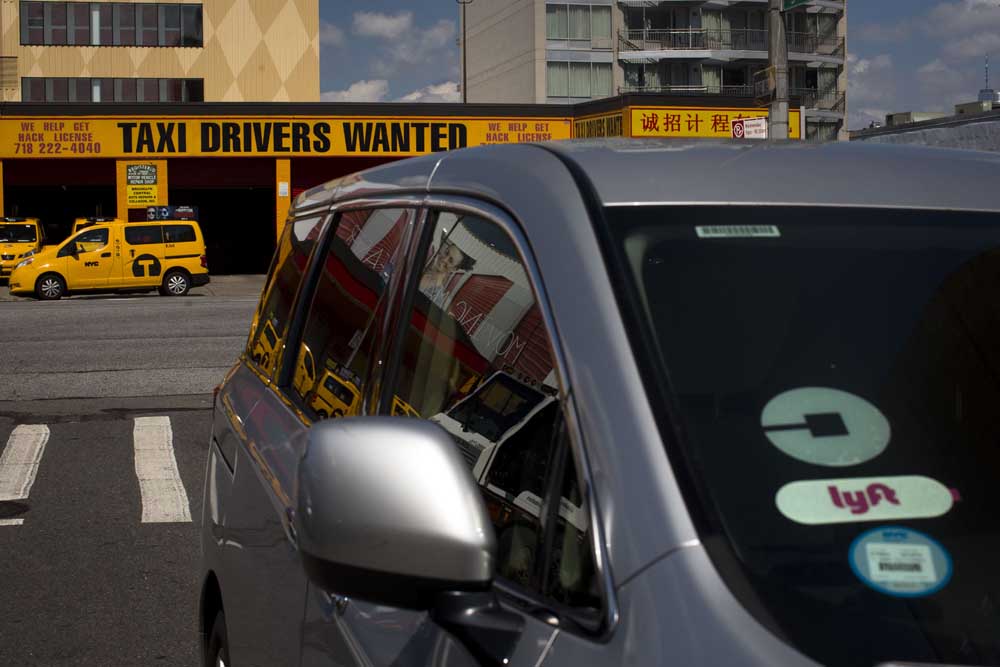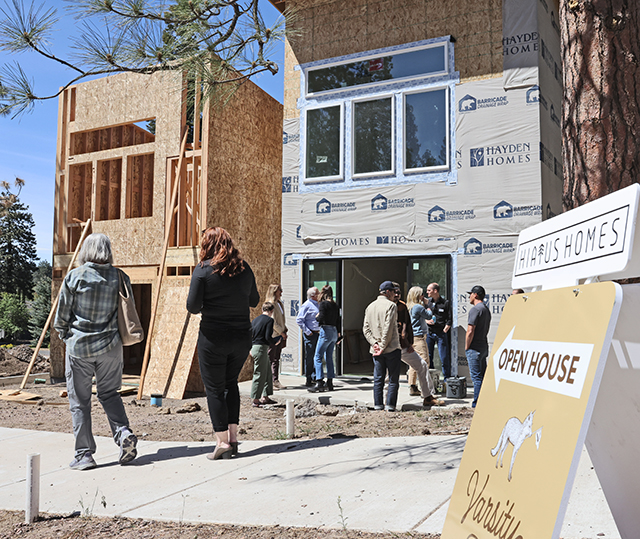Cab, ride-share drivers urge cap on Uber, Lyft cars
Published 12:00 am Thursday, November 1, 2018

- Ride-sharing company Lyft is also facing tough economic headwinds as it tries to restructure its business.
Chicago taxi and ride-share drivers, bitter rivals on the road, have joined forces to seek legislation to limit the number of Uber and Lyft cars in the city.
Drivers representing Chicago Rideshare Advocates and Cab Drivers United called for regulations similar to those recently enacted in New York City, which put a one-year moratorium on new for-hire vehicle licenses.
The goal is to increase earnings for struggling taxi and ride-share drivers while decreasing congestion on streets. There are more than 67,000 active Uber and Lyft drivers in Chicago, according to the city.
Nearly half of Chicago’s 6,999 licensed cabs are in foreclosure or off the road, according to city data.
Ride-share drivers are not doing much better, said Eli Martin, a driver for both Lyft and Uber who co-founded Chicago Rideshare Advocates in August.
“The vast majority of ride-share drivers are making minimum wage — before they factor in expenses,” said Martin, 36. “A lot of drivers might actually be operating at a loss.”
Officials do not plan to cap ride-sharing services, said Rosa Escareno, commissioner of the Department of Business Affairs and Consumer Protection, which regulates the taxi and ride-share industries.
Uber and Lyft also oppose ride-sharing caps in Chicago.
“We’ve already seen the effects of a transportation cap in Chicago with taxis, and we know how this story ends: Riders most in need of affordable, reliable transportation options on the South and West sides are ignored, and the lucky few vehicle license owners raise lease rates on drivers,” Uber spokeswoman Charity Jackson said in statement.
A Lyft spokeswoman also cited the need for unlimited licenses to better cover underserved areas of the city and emphasized that many Chicago ride-share drivers work part time.
Chicago’s taxi industry has been hard hit by changing consumer habits and the influx of ride-share drivers, a number that has grown fourfold in the past three years, according to the city.
Medallion prices have fallen from more than $300,000 five years ago to as low as $30,000 in July, according to city data. Banks that financed taxi medallion purchases are foreclosing on a growing number of owners, who are underwater and unable to make payments on the loans.






